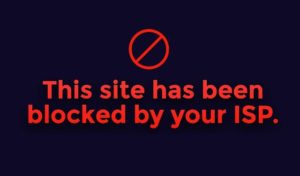States Push to Reinstate Net Neutrality Laws
 States are fighting to keep this from becoming a reality.
States are fighting to keep this from becoming a reality. On January 29 California senators voted 21-12 to pass a bill, SB460, that would re-establish net neutrality in the state. Authored by State Senate President Pro Tem Kevin de León, the bill will now be put to a vote in the State Assembly. The bill is part of a larger states-led effort to reenact net neutrality at the local level. California joins New York and Montana in resisting the Federal Communications Commission’s (FCC) December repeal of Obama-era rules that required internet service providers to treat all Web traffic equally.
Further, California State Attorney General Xavier Becerra joined together with state attorneys general in twenty-one states and the District of Columbia in a lawsuit challenging the FCC repeal, claiming that the rollback of net neutrality laws broke federal law. In this way, the repeal of net neutrality laws faces a challenge on multiple fronts.
Net neutrality has become a controversial subject under the Trump administration. In November, the Trump-appointed FCC Chairman Ajit Pai announced he would work to dismantle the Obama-era net neutrality laws—which were passed to ensure fairness in the marketplace for internet traffic. The 2015 laws prevented internet service providers from practices including blocking or slowing down access to sites or adding fees for faster bandwidth (paid fast lanes).
We only have to look to Portugal to see an example of how internet service providers can control website load times, access, and charges at their discretion. Social media outcry rightly pointed out that startup companies would be stifled by the marketplace crowding of larger apps which would thereby hamper innovation and entrepreneurship—a result in conflict with the free market platform of the FCC majority. Incidentally, the December FCC repeal of net neutrality laws passed in 3-2 party line vote.
Of course, to keep the power out of the hands of plutocrats, internet service providers must be restricted from pricing access to websites in an imbalanced manner. The social impact of rolling back net neutrality laws is such that state prosecutors and governors are now joining together to defend the rights of consumers against the greed of large telecom companies.
New York Governor Cuomo said about his signing of an Executive Order on January 24:
The FCC’s dangerous ruling goes against the core values of our democracy, and New York will do everything in our power to protect net neutrality and the free exchange of ideas. . . . with this executive order, we reaffirm our commitment to freedom and democracy and help ensure that the internet remains free and open to all.
As Mark Dunbar addresses in his article, “A Tighter Net: FCC Hands Strings to Internet Service Providers,” net neutrality is essential to protect organizing groups like the American Humanist Association and other advocacy organizations.
The telecommunications industry wants to become the rentier class of the digital age. It also wants the power to censor speech it doesn’t like and promote speech it does. First ISPs [internet service providers] will censor terrorists and criminals. Then it’ll be radicals and organizers.
On the plus side for internet consumers, providers will be shy to make any drastic changes while the impending litigation unfolds. Internet access is a public utility, much like water and electricity, and should be left out of the hands of tech moguls.
